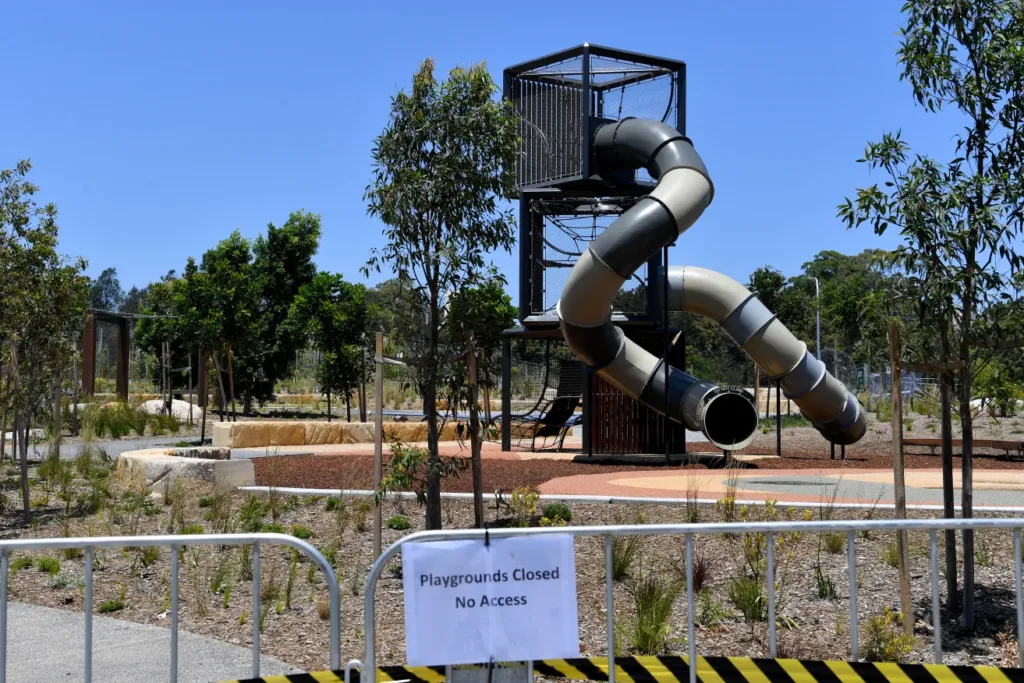The NSW government decided to punish firms for acting inappropriately when friable asbestos was found in park mulch in inner-city Sydney.
Last month, asbestos was found in hospitals, schools, and parks. Chris Minns, the premier, deems this to be “completely unacceptable.”
He continues by stating, “We cannot have a situation where there is asbestos in major public facilities like this, schools, and parks.” “The government is ready to intervene.”
According to Premier, the Environment Protection Authority is looking into supply networks and the widespread recall of recycled mulch.
Sydney announced on Monday night that the EPA had warned it the week before and that one of its suppliers may have supplied harmful mulch.
The council held trials at the Pope Paul VI Reserve in Glebe, Harmony and Prince Alfred Parks in Surry Hills, Belmore Park next to Central Station, and Victoria Park on Broadway
Harmony Park’s mulch contained asbestos. On Tuesday until 8:30 a.m., people and dogs strolled through the park. The park has homemade fences.
The park will have shutters and a gate. Spokesman for the council: The area will be cleaned and marked.
Minns believed that the EPA and councils ought to communicate more.
“This has nothing to do with laying blame,” he said.
The monitoring of contacts is essential. Sites containing asbestos can be found, and individuals committing crimes can be apprehended.
There is no longer a risk of bonded asbestos beneath the mulch in Victoria and Belmore parks. Fences and signage were erected around the impacted areas during the rubbish clearance.
Mulch was allegedly used in flower beds and tree roots rather than playgrounds, according to the authorities.
Compared to friable asbestos, bonded asbestos releases fewer dangerous particles because it is solid. This makes bonded asbestos safer.
Read More
Sydney’s city declared, “Asbestos has not been discovered at Prince Alfred Park in Surry Hills or Pope Paul VI Reserve in Glebe.” “There will be more testing at other parks in our neighbourhood.”
A hospital and a primary school in southwest Sydney had to close when asbestos was discovered in garden mulch.
The chemical was identified by the EPA at Liverpool West Public School on Sunday, and on Monday, Campbelltown Hospital found evidence of it in mulch.
Since Greenlife Resource Recovery provided the mulch for the school as well as Rozelle Parklands, the environmental watchdog prioritised testing.
The Greenlife lawyer, Ross Fox, refuted claims that the City of Sydney used Greenlife mulch in Belmore, Harmony, and Victoria parks.
reading selectively. Fox told The Guardian Australia on Tuesday that his client has been transferring mulch to landscaping yards.
I’ll give your question a lot of thought. Nothing is withheld from us.
According to an official, Greenlife provided mulch free of asbestos to landscapers.
“Once delivered, the mulch is used on a site without the company’s knowledge or control,” states.
The EPA, Fair Trade, and ACCC are looking into a significant recycled mulch recall; Minnesota may increase operator fines.
Minns stated that the EPA upheld the earlier directives it had made against Greenlife.
In his address on Tuesday, the prime minister stated, “I want to be clear that the EPA will be defending their orders made against that company.”
“The fact that that specific type of [friable] asbestos—not the bonded asbestos—was discovered in a Sydney park is extremely concerning,” stated a spokesperson.
NSW and the EPA started an investigation into the Rozelle interchange park’s asbestos bonding in January. Many areas of Sydney and the South Shore were contaminated.
Share this content:

